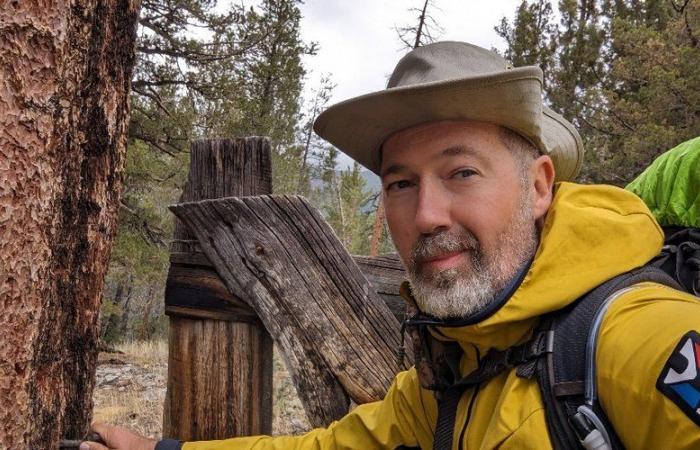
the essential
The stars are gradually dying from the chemical pollution of the sky and the multiplicity of satellites and other space debris. “The walk to the stars – in search of wild skies” is the new book by Toulouse writer Olivier Bleys, published by Actes-Sud. A truly exciting eco-friendly Californian road trip.
When a book immediately tells us that “the starry sky is threatened with obliteration, we listen, we squint our eyes and we turn the pages with excitement. This “Walk to the stars – in search of wild skies” , Olivier Bleys began to consider it, with his partner Julie, journalist in Toulouse, a few years ago. And thehe confinement has accelerated the reflection of this couple who are very concerned about the state of the world. From 2023, both went, with their daughter Iris, crisscrossing the great deserts and the coastline of the American West.
“This first confinement was an opportunity to think about projects, confides Olivier. And this rather rare experience, where we were able to look at less lit skies and relieved road and air traffic, made it possible to develop this walk to the stars. We wanted to take a multi-year world tour to meet the skies of the whole world!”
Anxious specialists
The sky explains to us the native of Lyon, is saturated with chemical pollution, proliferation of satellites. The multiplication of space debris has cast a black veil over this sky that man, whether scientific or religious, has never stopped, since the world began, to scrutinize, to question. And nothing points to improvement: “Lare specialists predict that “Nine out of ten bright spots we see in the sky in the 2030s will be artificial objects.”
With financial support from the Richard Lounsbery Foundation and the Jan Michalski Foundation – and without any French aid – Olivier, Julie and Iris are heading to California. Why the American West? “It is in California that the space industries most harmful to the quality of the sky are concentrated, but also the communities most committed to preserving the sky,” observes Olivier.
The deserts and hikes on the highest ridges of the Sierra Nevada are his; to Julie the field surveys with astronomers and “dark sky activists”. From these hours of discovery in a van or on foot will emerge pages filled with dizzying questions and simple, common-sense answers (“In my village near Toulouse, we worked on the lighting, the street lamps, by orienting the light towards the ground”) and a 50-minute film which will shed light on their conferences and speeches.
A moving connection to the void
Author of around thirty works, Olivier takes care not to lose any reader along the way. His pen is agile, his style precise and pleasant, and he never wraps himself up in this conviction of being right against everyone which, unfortunately, plagues so much ecological discourse. Explain, show, propose: urgency requires humility, not lectures. With his eyes towards the sky, his hand on his heart, Olivier Bleys knows how to tell us what is happening to our planet and the sky above our heads. And his story, often moving testimony of a connection to the void, to the cosmos, is edifying. A friend, an amateur astronomer, of this French couple crisscrossing the Californian landscapes, confided to them: “I am no longer looking for whether the catastrophe will happen, but how quickly it will happen.”





